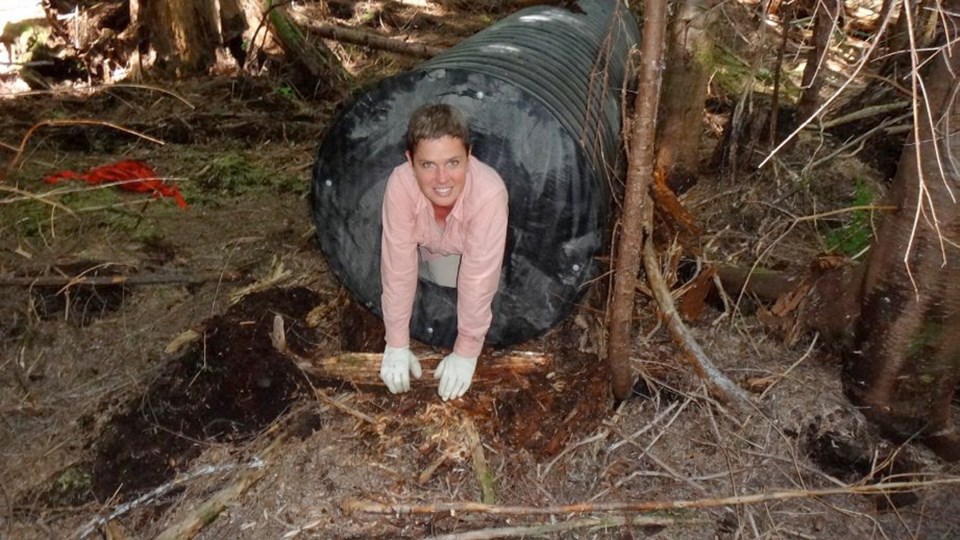Helen Davis of Artemis Wildlife Consultants this month worked with a team that installed three artificial black bear dens made of plastic culverts in the deep woods. The aim is increasing black bear habitat in the watershed.
It’s a pilot project funded by the Fish and Wildlife Compensation Program, which supports conservation and enhancement of watersheds affected by B.C. Hydro hydroelectric facilities.
The new dens are located on lands owned by TimberWest and a tree forest licence operated by Pacheedaht Anderson Timber Holdings.
There are 120,000 to 160,000 black bears in B.C., which amounts to a quarter of all black bears in Canada, says a factsheet published by the Ministry of Environment. The ministry estimates 5,000 to 6,000 black bears are on Vancouver Island.
Coastal black bears use large trees or wooden structures derived from trees for winter dens, Davis said.
“Generations of bears often reuse the same den,” she said in a statement.
Black bears usually mate from early June to mid-July but the embryo does not implant in the uterus until October or November. Cubs are born and nurse as the mother continues hibernating.
The new dens are being monitored by remote cameras. One bear investigated a den three days after it was installed, Davis said.
Aside from building the artificial dens, Davis and her team are clearing the area around suitable hollow trees in the hope that bears will make new dens there.
TimberWest biologist Dave Lindsay initiated an inventory of bear dens on company lands in the early 1990s.
“The results of this study combined with our den inventory will help us maintain healthy black bear populations across our land base,” Lindsay said.
Brian Assu, chairman of the Fish and Wildlife Compensation coastal regional board, said the project is important to the future of the local environment.
“Historically, salmonids and black bears have been important species in this watershed and these projects will help ensure they continue to be.”
The projects funded by the compensation program started this spring and will conclude by early 2015. In 2014, the program is providing more than $7 million toward more than 80 fish and wildlife projects provincewide.



